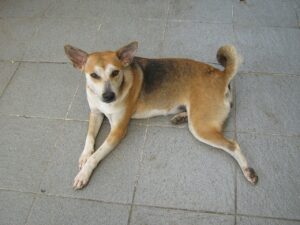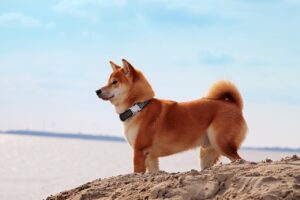
Food for hip dysplasia in dogs
Dogs are man’s best friend, but they can also be prone to various health conditions. One of the most common health concerns in dogs is hip dysplasia. Hip dysplasia is a condition in which the dog’s hip joint does not develop properly, causing the ball and socket joint to not fit together correctly.
This can cause pain, discomfort, and mobility issues for the dog. While there is no cure for hip dysplasia, proper nutrition can help manage the symptoms and improve the overall quality of life for the dog. In this article, we will discuss the best food for hip dysplasia in dogs.
Understanding Hip Dysplasia in Dogs
Hip dysplasia is a hereditary condition that is most commonly found in large breed dogs. However, it can also affect small breed dogs as well. The condition is caused by a combination of genetic and environmental factors.
Dogs with hip dysplasia usually experience pain, difficulty getting up or laying down, and stiffness in the hind legs. The symptoms of hip dysplasia can vary in severity, and some dogs may not show any symptoms until they are older.
The Importance of Nutrition for Dogs with Hip Dysplasia
Good nutrition is essential for all dogs, but it is especially important for dogs with hip dysplasia. Proper nutrition can help manage the symptoms of hip dysplasia and improve the overall quality of life for the dog. A balanced and nutritious diet can help maintain a healthy weight, support joint health, and reduce inflammation.
Nutrients to Look for in Dog Food for Hip Dysplasia
When choosing food for a dog with hip dysplasia, it is important to look for specific ingredients that can help manage the symptoms. Here are some nutrients to look for in dog food for hip dysplasia:
Protein
Protein is an essential nutrient for dogs, and it is especially important for dogs with hip dysplasia. Protein helps build and repair muscle, which can help support joint health. Look for dog food that contains high-quality sources of protein, such as chicken, fish, or beef.
Glucosamine and Chondroitin
Glucosamine and chondroitin are two nutrients that are commonly used to support joint health in dogs. These nutrients can help reduce inflammation, improve joint mobility, and relieve pain. Look for dog food that contains glucosamine and chondroitin, or consider giving your dog a supplement that contains these nutrients.
Omega-3 Fatty Acids
Omega-3 fatty acids are anti-inflammatory nutrients that can help reduce inflammation in the joints. Look for dog food that contains sources of omega-3 fatty acids, such as fish oil or flaxseed.
Vitamin C and E
Vitamin C and E are antioxidants that can help reduce inflammation and support joint health. Look for dog food that contains sources of vitamin C and E, such as fruits and vegetables.
Foods to Avoid for Dogs with Hip Dysplasia
Just as there are nutrients that can help manage the symptoms of hip dysplasia, there are also foods that should be avoided. Here are some foods to avoid for dogs with hip dysplasia:
High-fat Foods
High-fat foods can contribute to weight gain, which can put additional strain on the joints. Avoid feeding your dog foods that are high in fat, such as bacon or sausage.
Grains
Grains are a common ingredient in many dog foods, but they can contribute to inflammation in the joints. Consider feeding your dog a grain-free diet, or choose dog food that contains low-glycemic grains such as quinoa or barley.
Homemade Dog Food Recipes for Hip Dysplasia
If you are concerned about the quality of store-bought dog food, you may want to consider making your own dog food at home. Here are some homemade dog food recipes that are beneficial for dogs with hip dysplasia:
Chicken and Sweet Potato
Ingredients:
- 2 cups cooked chicken, shredded
- 2 cups cooked sweet potato, mashed
- 1 cup cooked green beans, chopped
- 1/4 cup chicken broth
Instructions:
- Combine all ingredients in a large bowl.
- Mix well.
- Serve to your dog.
Salmon and Brown Rice
Ingredients:
- 2 cups cooked salmon, flaked
- 2 cups cooked brown rice
- 1 cup cooked carrots, chopped
- 1/4 cup fish oil
Instructions:
- Combine all ingredients in a large bowl.
- Mix well.
- Serve to your dog.
Conclusion
Hip dysplasia can be a challenging condition for dogs and their owners. However, with proper nutrition, dogs with hip dysplasia can live happy and healthy lives. When choosing food for a dog with hip dysplasia, look for ingredients that support joint health, reduce inflammation, and maintain a healthy weight. By providing your dog with the right nutrients, you can help manage the symptoms of hip dysplasia and improve their overall quality of life.







